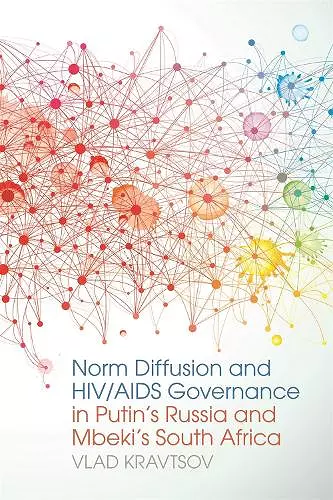Norm Diffusion and HIV/AIDS Governance in Putin's Russia and Mbeki's South Africa
Format:Paperback
Publisher:University of Georgia Press
Published:1st Apr '19
Should be back in stock very soon

How Russia and South Africa groped for governance alternatives to the HIV/AIDS pandemic and have tried to justify their utility ever since
Vlad Kravtsov argues that recent debates about the nature of authority in Putin’s Russia and Mbeki’s South Africa have resulted in a set of unique ideas on the cardinal goals of the state. This is the first book to explore how these consensual ideas have shaped health governance and impinged on norm diffusion processes.
Although adopting global norms often improves domestic systems of governance, domestic obstacles to norm diffusion are frequent. States that decide to reinvent their political authority simultaneously evaluate which current global norms are desirable and to what extent. In this study, Vlad Kravtsov argues that recent debates about the nature of authority in Putin’s Russia and Mbeki’s South Africa have resulted in a set of unique ideas on the cardinal goals of the state. This is the first book to explore how these consensual ideas have shaped health governance and impinged on norm diffusion processes.
Detailed comparisons of HIV/AIDS governance systems in Russia and South Africa illustrate the argument. The Kremlin’s dislike of international recommendations stemmed from the rapidly maturing statism and great power syndrome. Pretoria’s responses to global AIDS norms were consistent with the ideas of the African Renaissance, which highlighted indigenousness, market-based empowerment, and moral leadership in global affairs. This book explains how and why the governments under investigation framed the nature of the epidemic, provided evidence-based prevention services, increased universal access to proven lifesaving medicines, and interacted with other participants in social practice.
ISBN: 9780820355481
Dimensions: unknown
Weight: unknown
280 pages